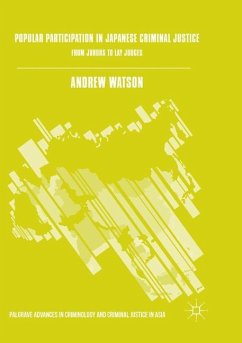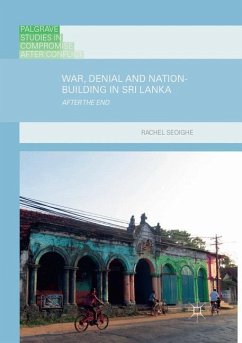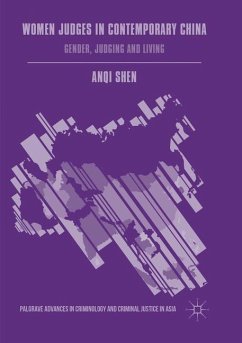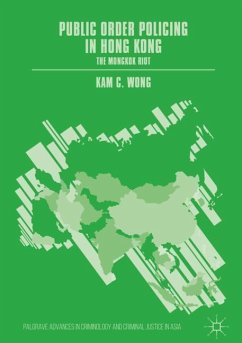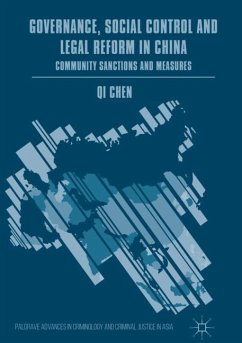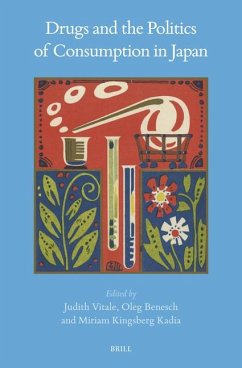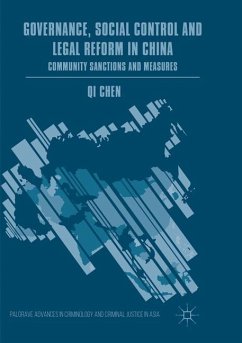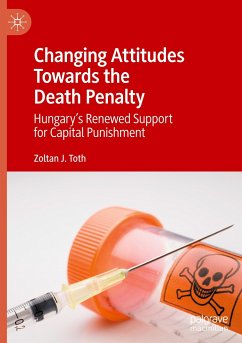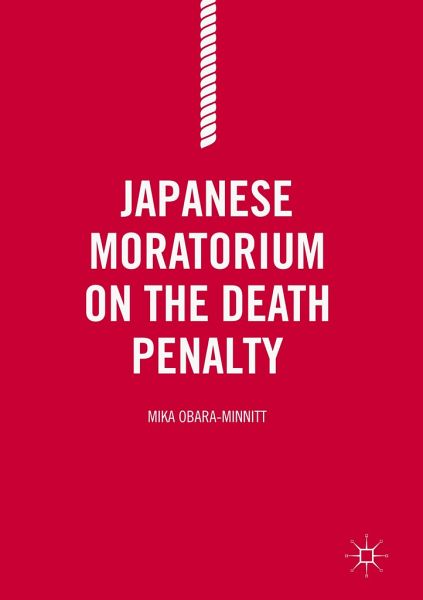
Japanese Moratorium on the Death Penalty
Versandkostenfrei!
Versandfertig in 6-10 Tagen
53,99 €
inkl. MwSt.
Weitere Ausgaben:

PAYBACK Punkte
27 °P sammeln!
Offering a timely reanalysis of the issue of Japan's capital punishment policy, this cutting edge volume considers the de facto moratorium periods in Japan's death penalty system and proposes an alternative analytical framework to examine the policy. Addressing how the Ministry of Justice in Japan justified capital punishment policy during the de facto moratorium periods from 1989 to 1993, from 2009 to 2010 and from 2010 to 2012, the author debates the misconceptions surrounding the significance of these moratoriums.The book evidences the approach, rationale and evolution of Japan's Ministry o...
Offering a timely reanalysis of the issue of Japan's capital punishment policy, this cutting edge volume considers the de facto moratorium periods in Japan's death penalty system and proposes an alternative analytical framework to examine the policy. Addressing how the Ministry of Justice in Japan justified capital punishment policy during the de facto moratorium periods from 1989 to 1993, from 2009 to 2010 and from 2010 to 2012, the author debates the misconceptions surrounding the significance of these moratoriums.
The book evidences the approach, rationale and evolution of Japan's Ministry of Justice in consistently justifying capital punishment policy during the different execution-free periods and provides a better understanding of the powerful unelected elite who actually drive the capital punishment system in Japan. Based on parliamentary proceedings, public opinion surveys and periodical reports by both international and domestic human rightsNGOsas well as interviews of government ministers, NGO staff, pro- and anti-death-penalty advocates, this text is key reading for those interested in Japan, its government, criminal justice system and policies on the death penalty and human rights.
The book evidences the approach, rationale and evolution of Japan's Ministry of Justice in consistently justifying capital punishment policy during the different execution-free periods and provides a better understanding of the powerful unelected elite who actually drive the capital punishment system in Japan. Based on parliamentary proceedings, public opinion surveys and periodical reports by both international and domestic human rightsNGOsas well as interviews of government ministers, NGO staff, pro- and anti-death-penalty advocates, this text is key reading for those interested in Japan, its government, criminal justice system and policies on the death penalty and human rights.





